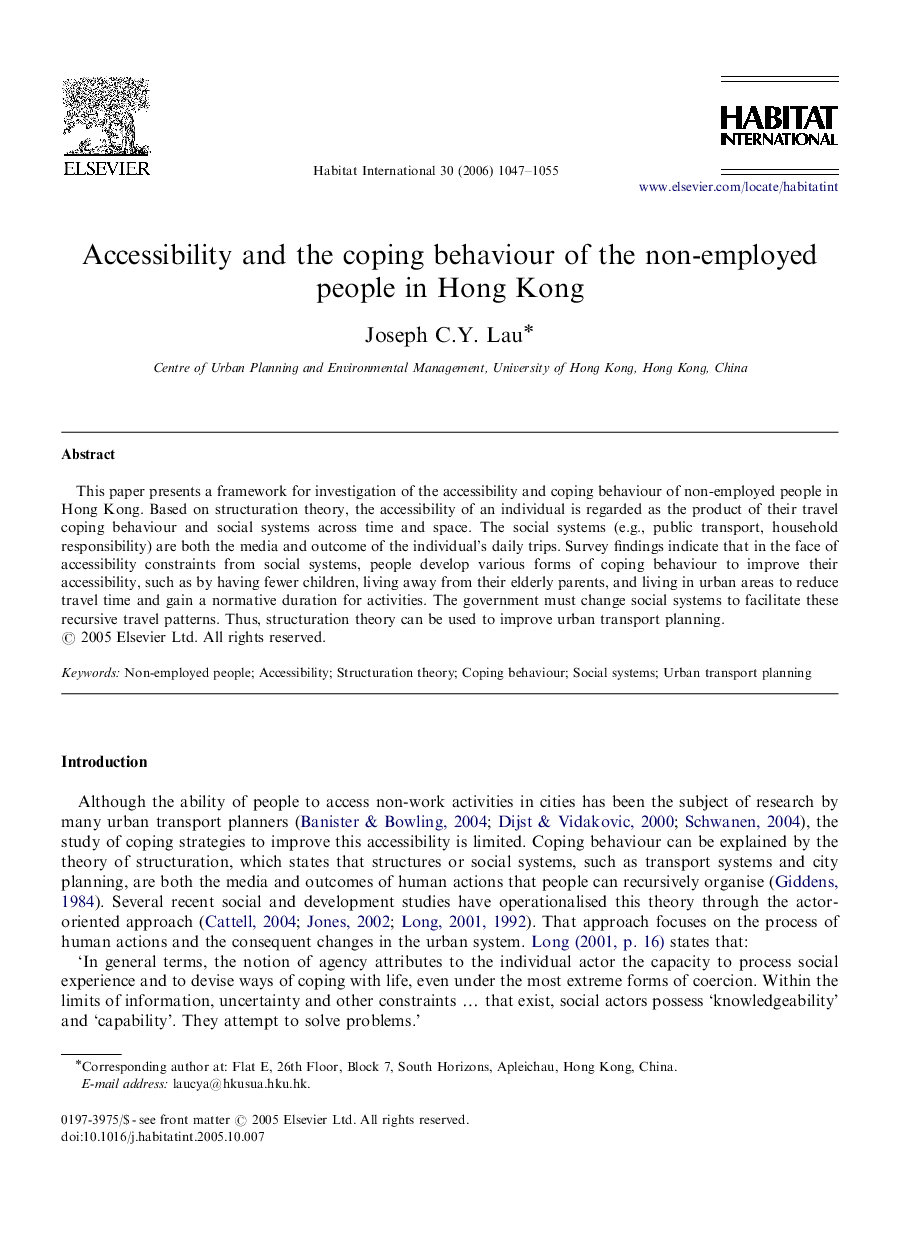| کد مقاله | کد نشریه | سال انتشار | مقاله انگلیسی | نسخه تمام متن |
|---|---|---|---|---|
| 1048549 | 1484507 | 2006 | 9 صفحه PDF | دانلود رایگان |

This paper presents a framework for investigation of the accessibility and coping behaviour of non-employed people in Hong Kong. Based on structuration theory, the accessibility of an individual is regarded as the product of their travel coping behaviour and social systems across time and space. The social systems (e.g., public transport, household responsibility) are both the media and outcome of the individual's daily trips. Survey findings indicate that in the face of accessibility constraints from social systems, people develop various forms of coping behaviour to improve their accessibility, such as by having fewer children, living away from their elderly parents, and living in urban areas to reduce travel time and gain a normative duration for activities. The government must change social systems to facilitate these recursive travel patterns. Thus, structuration theory can be used to improve urban transport planning.
Journal: Habitat International - Volume 30, Issue 4, December 2006, Pages 1047–1055